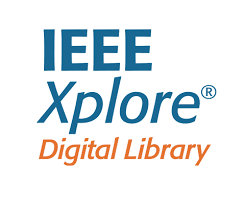Title: Digital Twin Real-Time FPGA implementation for light electric vehicle propulsion system using EMR organization
Written by: M. Ruba, R. O. Nemes, S. N. Ciornei, C. Martis, A. Bouscayrol, G. Sirbu, H. Hedesiu
Abstract: The paper focuses on implementation of several different concepts of wise analysis of light electric vehicle propulsion unit testing facility. Firstly, the concept of “digital twin” that represents a simulated replica of a complete testing facility is presented. More, instead of using an off-line simulation environment, the digital twin (DT) is programmed to run using two field programmable gate arrays (FPGA), hence it becomes an online real-time simulation. The second concept is the distribution of the digital twin. The actual unit controller is programed into one FPGA and the machine under test, its load and the power inverter are implemented into a second FPGA. The communication between the two is handled using analog and digital lines, just like the controller would be connected to the real test-bench. The third concept involves the organization of each of the two FPGA programs, based on Energetic Macroscopic Representation (EMR) that facilitates transparency, ease of implementation and minimizes the error in coding the actual test-bench replica and then its controller. Combining all the above mentioned concept into one single lucrative tool, experimentally validated by actual measurements, proves that the concept of using a DT implemented in real-time, without doubt can be used for testing prototypes and their controls regardless of the actual test-bench. Hence, on one hand it is eco-friendly, precise and save testing method and on the other hand, the same DT can be used by researchers and testers in facilities that do not have a test-bench at their disposal.
Keywords: Digital twin, Real-time, FPGA, EMR
Original article: https://ieeexplore.ieee.org/document/8952428
Repository: https://hal.archives-ouvertes.fr/hal-02495991 (open access)
